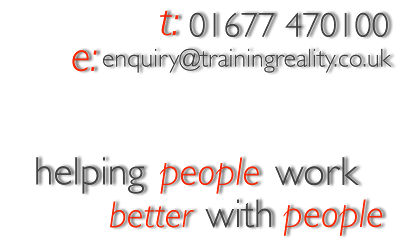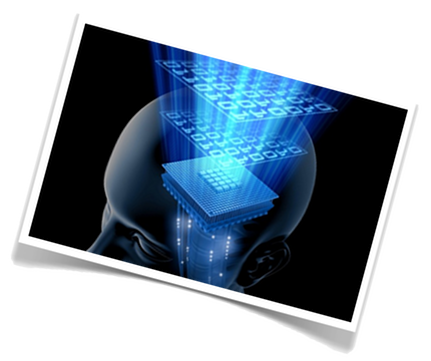Please press (at least!) one of these.
It costs you nothing, and (possibly) helps us spread the word!
Embodiment 2.0
What does it mean to have a body in the digital age?
Guest blog from Mark Walsh
Wednesday, 6 June 2012
I'm guessing you're reading this at a computer - how's your posture? How's your breathing? Are you aware of your body as you read? Why does any of this matter?
Why Embodiment Matters
We are embodied creatures - there is no escaping this. We do not just "have" bodies but are bodies. Our thinking, emotions, relationships, leadership, stress, etc, all happen through the medium of a body. Bodies are not just a transport mechanism for our head and we could not download ourselves into a computer without fundamentally changing ourselves. People who design robots are now designing them with bodies in fact, though they are crude compared to our own. In my work in stress management and leadership training I explore what it is to be embodied, and how we can use this more fully.
Past Problems and Answers
The reason I have a job is that there has been an unfortunate series of events in history that made the body first bad and in need of repression in the Middle Ages, and then an object of production in the industrial revolution and finally a consumer thing honed in gyms but still a dissociated "it". This has lead to the problem of dissociation or body disconnection. This is a real problem as our health, emotional intelligence, relationships, intuition, spirituality, even our ethics and values depends upon embodiment. Without it we are unable to feel ourselves or others and are essentially autistic and psychopathic. I don't say this lightly.
In response to the problem of disembodiment, "somatic" or "embodied" disciplines arose in the 60's and have gained in popularity ever since. While some have ironically fallen into the trap they started to get us out of, there's no denying that yoga, tai-chi, dance and other forms of "moving meditation" have helped many people get back in touch with themselves.
New Problems
Have you ever been online and so "into it" that you only came back when you badly needed the toilet, when you shoulders really ached or you were very hungry? This is disembodiment in the digital distraction and dissociation age. Ever felt alienated, dissatisfied and cut-off from yourself after a marathon online session? Ever flamed someone online in a way you never would in real life - this is the loss of self-connection empathy that can happen as a result of being online.
Computer use minimises movement and most computer and furniture design forces unhealthy postures on top of this. With people now spending much of their work day and in many cases social time too at a computer, the body has a new challenge. Now, I am not anti technology: I am an avid user of all all social media, and the internet has made possible many opportunities for me. What I do see however is that it can easily create scattered and disembodied attention, a "wired" hyper-arousal state (if you've ever found it hard to sleep after being online you know about this) and the promise of constant connection can actually disconnect us from ourselves and those physically close.
New Opportunities
Happily, this current crisis of digital disembodiment also brings new openings. Skills that were once both hard to find and a luxury, like mindfulness and embodiment practices, are now more of a necessity than an extra, and information on them is readily available. More radical than the notion that online activity can be balanced with such practices is the new idea that e-mail, Facebook, texting etc can become practices for embodiment themselves. Along with a Buddhist teacher friend we recently experimented with this "technology mindfulness" and got good results and feedback. Shortly I will be launching the "Embodied Operating System", a web-based resource, community and enquiry of what it is to be embodied in the 21st century. Others are experimenting with self-tracking and some are actively seeking to become cyborg. The iPhone 10 will likely be a brain implant, but, before this, the rest of us will need to come to terms with having a body in a new way, and staying embodied in this new context, if we are to remain happy, healthy and sane online.
--
Mark Walsh - Bio
Mark Walsh leads business training providers Integration Training - based in Brighton, London and Birmingham UK. Specialising in working with emotions, the body and spirituality at work they help organisations get more done without going insane (time and stress management training), coordinate action more effectively (team building and communication training) and help leaders build impact, influence and presence (leadership training). Clients include Unilever, The Sierra Leonian Army and the University of Sussex. He is the most followed trainer on Twitter and Youtube and has the Google no.2 ranked management training blog. Offline, Mark dances, meditates and practices martial arts. His ambition is to help make it OK to be a human being at work.
Please press (at least!) one of these.
It costs you nothing, and (possibly) helps us spread the word!





